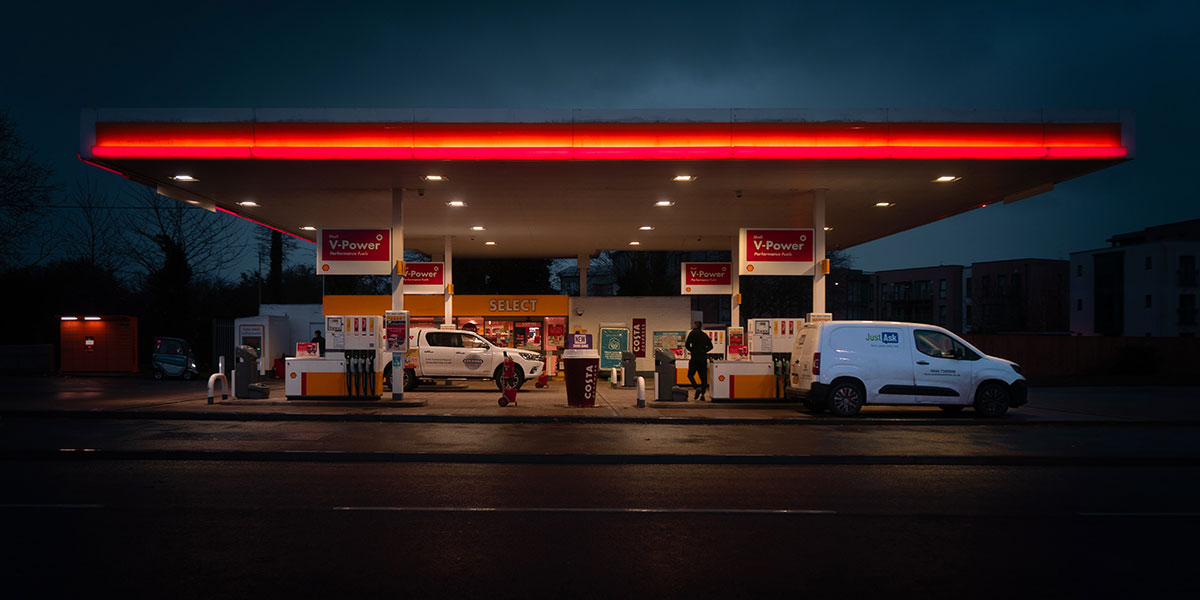From clutch control and parallel parking to basic road rules and motorway etiquette, there’s a lot to learn when getting behind the wheel for the first time. A good teacher is a must but what many young motorists don’t realise is that the car can also have a big impact on your driving experience. That’s why we’ve put together a roundup of the best cars to learn to drive in.
Whether you’re a brand-new driver or a parent on the search for the best cars for teenagers, this guide spotlights vehicles that are easy to handle, reliable and affordable – a winning trifecta in our opinion! We’ve included new models for 2024 as well as popular used options. And yes, you’ll see both manual and automatic cars on the list.
1. Ford Fiesta
New Price: £19,000 – £23,000
Used Price: £5,000 – £10,000
When it comes to staying power it’s hard to beat the Ford Fiesta. It’s a firm favourite among learner drivers in the UK, and for good reason. As well as being compact and easy to manoeuvre, it’s packed with best-in-class safety features. This is exactly what you want when you’re learning to drive.
2. Volkswagen Polo
New Price: £20,000 – £24,000
Used Price: £6,000 – £12,000
The Volkswagen Polo is hands down one of the best cars to learn to drive in. Known for its quality construction and reliable engine, the Polo promises comfort and safety. The well-designed interior boasts intuitive controls while the car’s compact size makes navigating city streets a breeze. Like the Ford Fiesta, the Volkswagen Polo is available in both manual and automatic, offering lots of flexibility for learners.
3. Toyota Yaris
New Price: £21,000 – £25,000
Used Price: £7,000 – £13,000
Looking for a learner-friendly hybrid? The Toyota Yaris is a great pick for eco-conscious new drivers. Its compact size delivers excellent fuel economy while a suite of safety features, including automatic emergency braking, offer peace of mind for learner drivers (and their teachers riding shotgun!).
4. Kia Picanto
New Price: £13,000 – £17,000
Used Price: £4,000 – £8,000
Built for urban driving, the Kia Picanto is a terrific budget-friendly option for beginners. It’s one of the more affordable cars to learn to drive in but certainly doesn’t skimp on quality or performance.
5. Hyundai i10
New Price: £15,000 – £18,000
Used Price: £4,000 – £9,000
The Hyundai i10 is a small car that offers big value. It’s affordable, easy to drive and comes with all kinds of optional extras. Think alloy wheels, LED daytime running lights, smart key technology, heated front seats, privacy glass and more. Talk about luxury for less! The compact size and easy-to-handle steering make it a breeze to drive and park – a big plus for learners who might be nervous behind the wheel.
6. Vauxhall Corsa
New Price: £18,000 – £22,000
Used Price: £5,000 – £10,000
With low running costs and responsive handling, it’s easy to see why the Vauxhall Corsa is one of the best cars to learn to drive in. The model is available in both manual and automatic, with newer versions built with petrol, hybrid or fully electric engines. Modern tech features like touchscreen infotainment systems make it easy to run Google Maps, crank Dua Lipa and stay connected on the go.
7. Renault Clio
New Price: £19,000 – £23,000
Used Price: £5,000 – £10,000
This much-loved French supermini is a stylish choice for new drivers. The high-quality interior feels luxurious and efficient engines keep running costs low. It’s also surprisingly spacious for a small car.
8. Mini Hatchback
New Price: £22,000 – £28,000
Used Price: £6,000 – £12,000
If it’s good enough for Kate Moss, it’s good enough for learner drivers! The Mini Hatchback is a British icon and perfect if you want to inject a bit of fun into your driving lessons. Agile handling is just the beginning… The car has a premium feel and despite its compact size, feels quite spacious inside.
9. Fiat 500
New Price: £16,000 – £20,000
Used Price: £4,000 – £8,000
What’s not to love about a little Italian flair when you’re learning to drive? Going strong since 1957, the model is widely considered the first ‘city car’ and set a new benchmark for compact design. New generation models are fun to customise, but you’ll also find great deals on the used market.
10. Honda Jazz
New Price: £21,000 – £25,000
Used Price: £6,000 – £12,000
A little bigger than some of the options on this list of the best cars to learn to drive in, the Honda Jazz promises space and versatility. A high driving position promises excellent visibility and helps boost the confidence of new drivers.
Why these cars are ideal for learning to drive?
Easy to handle and manoeuvre
The last thing you need when learning to drive is a car that’s tough to handle. All the models mentioned above are known for their easy manoeuvrability, making them ideal for newbies who are still building their confidence behind the wheel.
Great safety features
New drivers benefit enormously from cars with modern safety features. From automatic emergency braking and lane departure warnings to multiple airbags, the cars in our roundup all perform exceptionally when it comes to safety.
Affordable
Even new, the cars mentioned above offer unbeatable value for money. And let’s face it, affordability is a big priority for most new drivers. Even better, all models boast lower running costs, another plus for budget-conscious learners.
Learn in style with My Car Credit
Whether you opt for a brand-new set of wheels or a reliable used model, the right car can significantly enhance the learning experience for new drivers. The key to finding the best cars to learn to drive in? Picking a vehicle that offers a good balance of safety, affordability and ease of use. When you’ve settled on a favourite, My Car Credit is here to help you secure the keys with car finance advice for young drivers.
Try our car finance calculator and see how My Car Credit can get you into the driver’s seat.
Rates from 9.9% APR. Representative APR 10.9%
Evolution Funding Ltd T/A My Car Credit
Require more help?
Got a question you can’t find the answer to, or need some advice and guidance around taking out car finance? Our Car Credit Specialists are friendly, experienced, and here to help so get in touch today!











